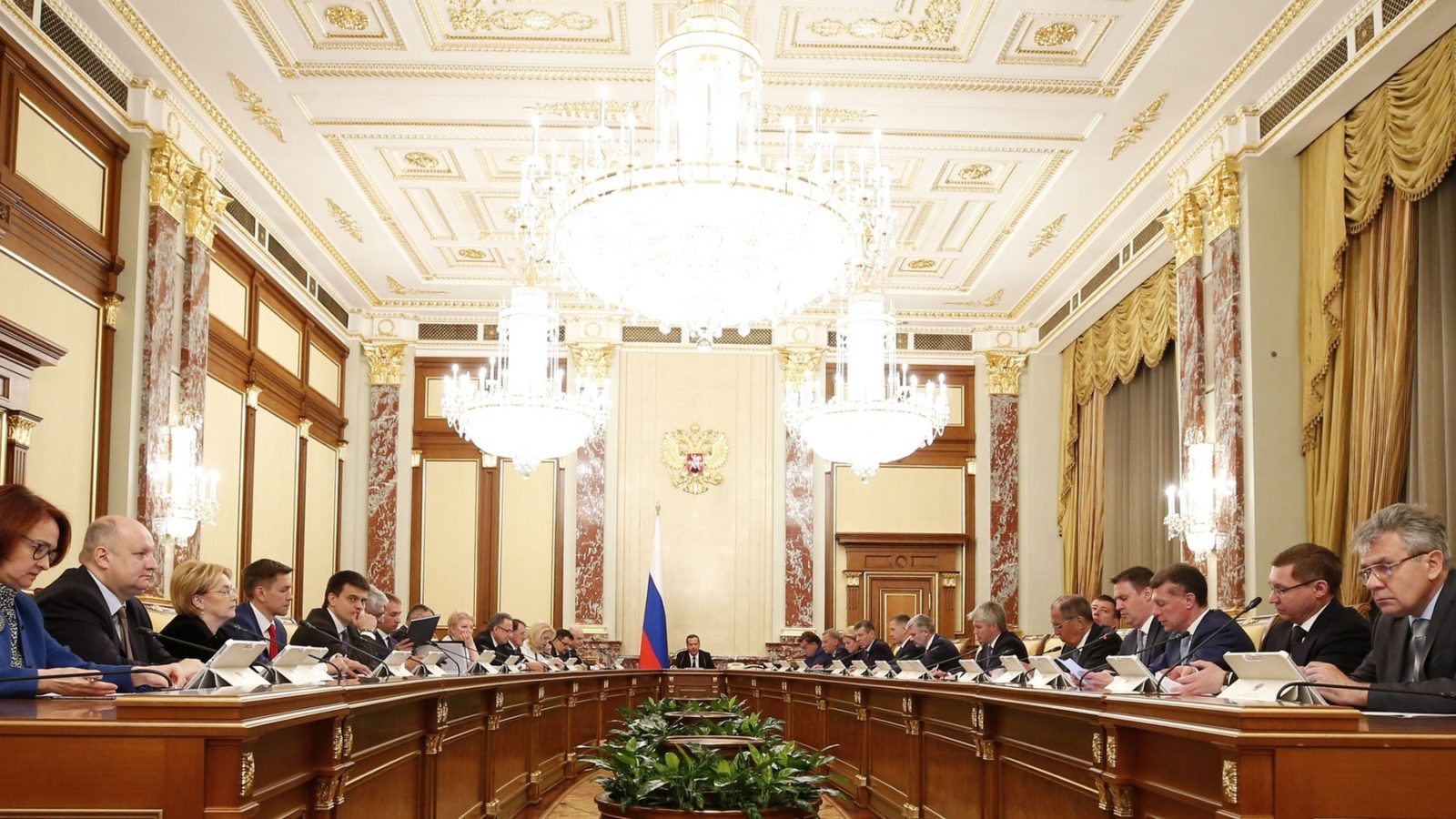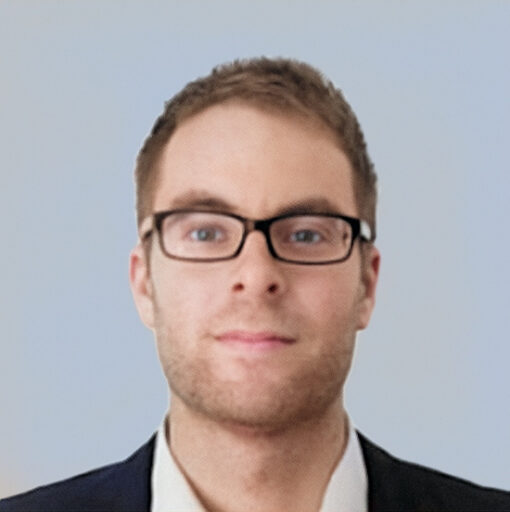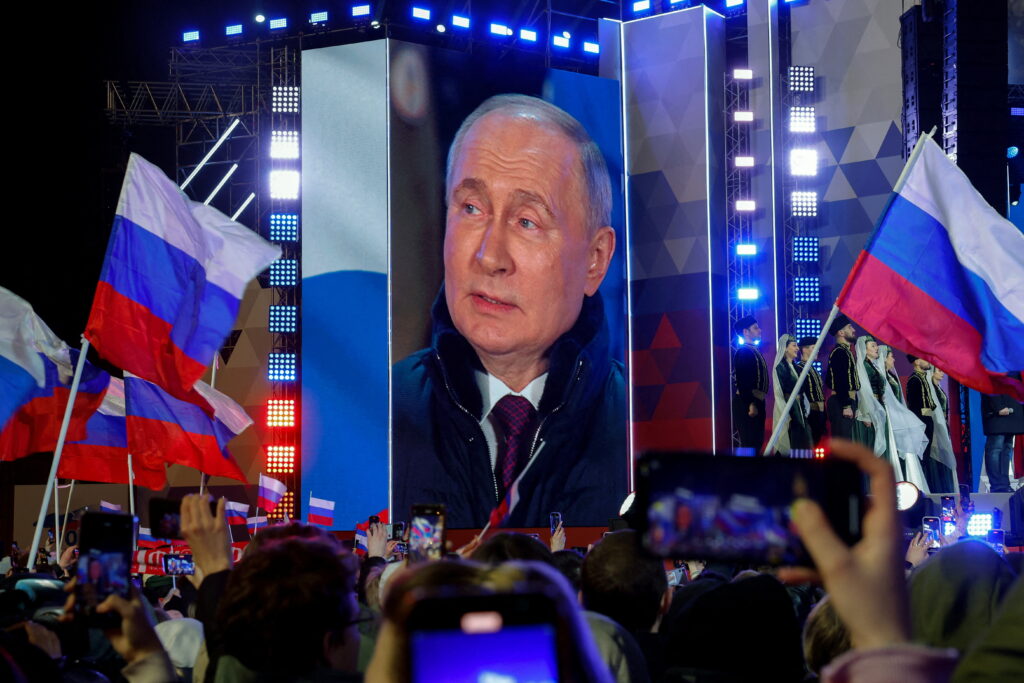Between October 2017 and February 2018, a competition was held that received little attention outside of Russia. Almost 200,000 applicants – 90% of whom came from outside of public administration – competed in several rounds for the title of future “Leaders of Russia”. The prize? A top job in the civil service or a state corporation. The finals were held in Sochi at the Sirius education center for gifted children headed by Elena Shmeleva, who was one of the three co-chairpersons of Vladimir Putin’s election campaign. And indeed, roughly sixty finalists were appointed in ministries and other federal state organs.
It is tempting to dismiss the competition as yet another Potemkin village to embellish Putin’s rather uninspired presidential election campaign. But there seems to be rather more to it than that. The event was organized by the deputy head of the presidential administration Sergei Kirienko and the Presidential Academy of National Economy and Public Administration (RANEPA). Kirienko’s interest in personnel management is long standing. Back in 2000, when he was presidential representative in the Volga Federal District, Kirienko’s hobby horse had been a recruitment policy known as the “golden cadre reserve”. Several younger bureaucrats, such as economy minister Maksim Oreshkin or Kaliningrad governor Anton Alikhanov, seemed to have been genuinely enthusiastic about boosting vertical upward mobility, unlike some other top officials among the 64 mentors of the program. Also, the unprecedented number of applicants from all over Russia somewhat belies the assertion often met in public discourse that there is a dearth of talent that could be tapped.
The composition of the new Russian government appointed on 18 May by president Putin, however, clearly demonstrated a victory of the cohort of ‘mentors’ over the ‘mentees’, and of horizontal rotation over vertical mobility. Indeed, changes occurred among slightly less than 50% of all cabinet positions, a scale comparable to the transition from Putin’s first to second presidential term when in Prime Minister Mikhail Fradkov’s 2004 government, about half of the ministers had already served in Prime Minister Kasyanov’s 2000-2004 government. Yet, in fact, the new government of Dmitry Medvedev, whose reappointment had been anticipated by many, has actually become older by more than four years on average. In 2012, Medvedev’s government had an average age of 47.17 years while in 2018, the mean jumped to 51.27 years. This is consistent with broader trends among the Russian political elite of governors, in the presidential administration and the Federal Assembly: There is an ever widening gap between presidential rhetoric on bringing in fresh faces and the reality of an aging elite trapped in horizontal cadre rotation. Among the ten deputy prime ministers, really only one among the five newly appointed deputy PMs can be considered a clear case of upward mobility. That would be Maksim Akimov, responsible mainly for civil service and digital technologies, who made his career in the rather progressive Kaluga region. Most others have had cabinet experience in various positions at least since the mid-2000s, most notably Tatyana Golikova (minister of health from 2007 to 2012) and Aleksei Gordeev (minister of agriculture 1999-2009). Among the nine newly appointed officials in the rank of minister, the situation looks slightly better: three are former governors (a common pattern of promotion in the past), and four others stem from second and third layers of the civil service and who were now – as part of a more or less systematic cadre management system – promoted to a cabinet position.
One of the most remarkable features of the new government is what analyst Nikolay Petrov has called the rise of the “school of MinFin”, the Ministry of Finance, including two deputy ministers and three ministers with a background in the most meritocratic structure of Russia’s government. The incumbent Minister of Finance Anton Siluanov was promoted to first deputy prime minister, which made him, according to Sergey Aleksashenko, the most powerful Minister of Finance since the legendary Egor Gaidar in 1991/1992. These fiscal experts should not be understood as a team with a common mission, but the preference for nit-pickers clearly demonstrates that the main goal of the government is not so much reform, but the minimization of political and economic risks with tight resources available, and a foreign policy that puts additional strain to the state budget. This fiscal profile has been further strengthened with the appointment of former Minister of Finance Aleksey Kudrin as new Chairman of the Audit Chamber. In the run-up to Putin’s presidential inauguration, rumors had been circulating that Kudrin might be appointed to a leading position in government (such as deputy PM) or in the presidential administration. Kudrin’s new role appears to be further evidence that the role of the new government in the next presidential term will be confined to fiscal management rather than any kind of reformist endeavor.
Structural changes to the distribution of administrative functions among the ministries were also kept to a minimum. Most notably, the number of deputy ministers was increased by one, the previous Ministry of Education was split up into two ministries, one responsible for research, the other for education, and the position of minister for open government (without portfolio) was abolished altogether.
Chicago University’s Konstantin Sonin rated the past government’s performance with a school grade of 4+ (on a scale from 1 to 5, where 5 is the best grade). Judging by the minor fine-tuning of both personal and institutional features of the government, one can assume that president Putin’s overall assessment did not differ much. Moreover, among those deputy PMs and ministers who left government, so far none of them was punished in an all too ostentatious manner by the president that would allow for conclusions about perceived excessive mismanagement or rent-seeking in their policy domains. Deputy PM Dmitry Rogozin, for instance, was dismissed from his post heading the Russian defense and aerospace sector only to be appointed as new head of Roscosmos, the agency responsible for the Russian space program. He won this new post even though he had drawn significant criticism both from branch specialists and the wider public.
Overall, both the composition and the appointment process seems to confirm that the government’s main purpose is to minimize political and economic risks, and to guarantee macroeconomic stability. In sharp contrast to the principles of openness and meritocracy espoused during the Leaders of Russia competition, the appointment process was characterised by a lack of transparency and the apparent backdoor haggling by various interest groups. This backroom drive for stability has been highlighted by Russian analysts, and the drawbacks are apparent: For the time being, even any only moderately ambitious reform attempt and upward mobility among civil servants have been jammed.
In terms of policy, the main strategic goals for the period between 2018 and 2024 have been set in a presidential decree on May 7 in a similar fashion to a series of ‘developmental’ May decrees at the beginning of the previous term in 2012. The over-arching goal: a “breakthrough in scientific-technological and socio-economic development.” At the recent St. Petersburg Economic Forum, Aleksey Kudrin compared the new cabinet to a crouching tiger preparing for a big leap forward to achieve the ambitious goals set down by the president. According to Kudrin, since the early 2000s during his time as Minister of Finance, the intra-executive roles have been reversed: back then, the government outlined more ambitious goals that were then reined in by the president. Nevertheless, intra-executive relations in the Russian presidential system (president-parliamentary in more technical terms) are still best described in terms of principal-agent relations where the president sets forth wide-ranging goals while implementation is delegated in large parts to the federal government and regional administrations, with all the issues of informational asymmetry and monitoring discrepancies associated with this form of hierarchical control attached.
The urge of top-down strategic planning to a certain degree resembles Soviet five-year plans, according to Vladimir Gel’man. It has led to what Stephen Fortescue calls “policy irresponsibility”: the co-existence of a multitude of strategic documents both on the federal and regional level which posit exceedingly ambitious and compulsory goals that are often mutually contradictory and insufficiently backed by financial resources. Ex-deputy PM Arkady Dvorkovich once complained 70% of his time gets spent solving coordination impasses among ministries in his sphere of responsibility. While the goals are set globally, implementation is done within organs of the executive which form vertical ‘silos’ or ‘wells’ (kolodtsy). In these Kolodtsy, ‘blame’ drips downward towards the departmental or even regional level, and between ministries and other federal organs, hampering implementation quantity and quality.
Kudrin and his colleagues from the Center for Strategic Research are well aware of these issues. In one CSR paper from late 2016, analysts found that previous key strategic documents such as Strategy 2010 or Strategy 2020 have been implemented by just 30-40%. Under electoral authoritarianism, strategic documents are therefore not so much about achieving the goals stipulated in the documents, but about formalizing vertical monitoring and mechanisms of control. If taken seriously, seemingly meritocratic competitions such as ‘Leaders of Russia’ would actually undermine this form of bureaucratic control. Therefore, with the victory of the cohort of ‘mentors’ within the new Medvedev government, the crouching in the status quo seems to be the main implicit goal for the ‘Russian tiger.’










